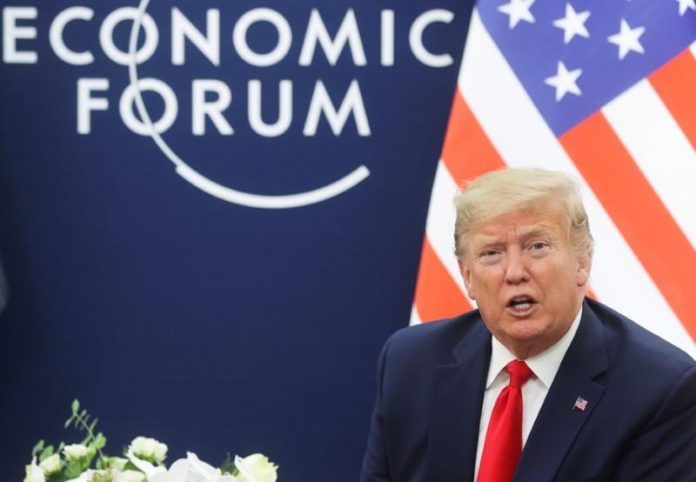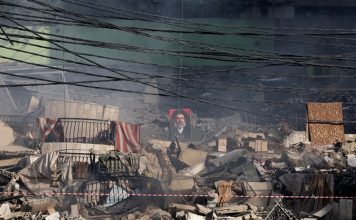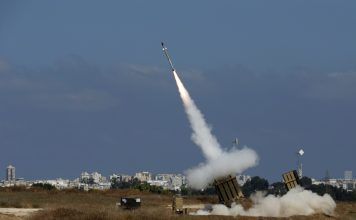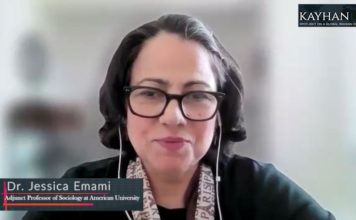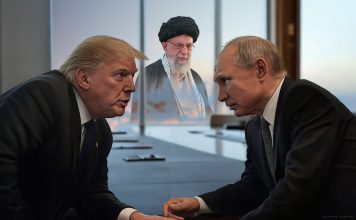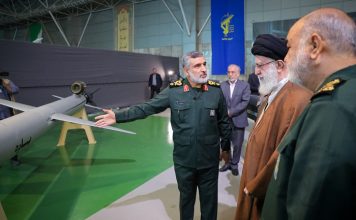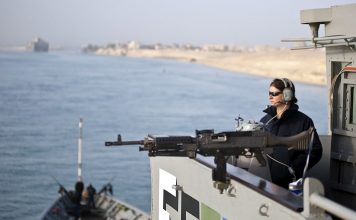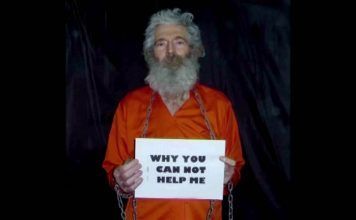By Ahmad Rafat
Donald Trump’s victory in the recent U.S. presidential elections and his return to the White House in January may lead to significant changes in the Middle East.
While Iran’s Supreme Leader Ali Khamenei has yet to comment publicly on the U.S. elections, Tehran is apprehensive about Trump’s policies, and seeking avenues for potential negotiations with the forthcoming U.S. administration.
Iran’s Foreign Minister Abbas Araghchi has said the country plans to launch a new military operation against Israel, but hopes that Trump will adopt a stance of “maximum rationality” instead of continuing his previous “maximum pressure” approach.
Yet Iran has delayed its military operation against Israel, which was initially intended to immediately after the U.S. presidential elections, because of Trump’s victory.
Mohammad Javad Zarif, who served as Iran’s Foreign Minister from 2013 to 2021 and who currently holds the position of Vice President for Strategic Affairs under Iranian President Massoud Pezeshkian, has expressed a hope that “the future U.S. administration will implement new policies” regarding both the Islamic Republic and the broader region.
Zarif, along with Araghchi, is referencing actions taken during Trump’s first term as U.S. president (2017-2021), during which radical measures such as maximum sanctions were imposed after the U.S. withdrawal from the 2015 Joint Comprehensive Plan of Action (JCPOA), better known as the Iran nuclear deal, in 2018.
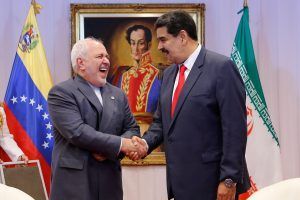
Islamic Republic officials also point to the assassination of Ghasem Soleimani, the former commander of the Qods Force (QF), who was responsible for the extraterritorial operations of the Islamic Revolutionary Guards Corps (IRGC). During the first Trump presidency, Soleimani was killed in a U.S. drone strike on Jan. 3, 2020, near Baghdad.
It remains uncertain what the policy of a future Trump administration will be. In the meantime, it is essential to note that the current circumstances differ vastly from those of 2017.
Following the attack by Hamas on Israeli territory on Oct. 7, 2023, a war erupted in the Gaza Strip that continues to this day and has extended into Lebanon.
Unlike in 2017, the proxy forces of the Islamic Republic — such as Hamas and Islamic Jihad in Gaza, along with Hezbollah in Lebanon — have suffered significant losses in their political and military leadership, and a considerable amount of weaponry supplied by Tehran has been destroyed.
There are signs that Trump’s upcoming administration will include individuals known for their strong opposition to the Islamic Republic, advocating for a return to the policy of maximum pressure.
There are reports that the president-elect’s transition team is already preparing executive orders to intensify pressure on Iran, with new directives that Trump is expected to sign immediately upon taking office.
The primary aim of these executive orders is to restrict the oil exports of the Islamic Republic.
Following the U.S. exit from the Iran nuclear deal in 2018, the Islamic Republic’s oil exports plummeted to 400,000 barrels per day.
However, under the current policy of the Joe Biden administration, which overlooks these sanctions, the Islamic Republic is now exporting more than 1.2 million barrels of oil daily.
Advisors to Trump contend that, once again, decreasing Iran’s oil exports would significantly hinder the country’s capacity to finance and equip proxy forces.
Reduced oil revenue for Iran could significantly weaken the groups they support in regions like Syria, Lebanon, Gaza, Iraq, and Yemen, potentially easing tensions in the Middle East and reducing pressure on Israel.
However, the aim of the pressures exerted on the Islamic Republic extends beyond merely diminishing the influence of proxy groups.
The ongoing implementation of these maximum pressures is to compel Iran to re-engage in negotiations concerning its nuclear programs.
Rafael Grossi, the director general of the International Atomic Energy Agency (IAEA), has noted that the Islamic Republic’s nuclear initiatives have grown at a concerning pace in recent years.
Will Trump Renew ‘Maximum Pressure’ Against Iran – Or Could There Be an Opening for Dialogue?
Another aim of the maximum pressure policy may be to prompt Tehran to reassess its regional policies.
During his election campaign, Trump consistently stated that he does not seek to change Iran’s regime but rather that he aims to push the Islamic Republic toward negotiations.
Initial steps towards these potential negotiations have already begun.
A recent unofficial and secret meeting in New York between Elon Musk — whom Trump recently appointed to co-lead the newly formed Department of Government Efficiency (Doge) — and Amir Saeed Iravani, the Islamic Republic’s ambassador to the United Nations, can be seen as an initial step towards facilitating future negotiations.
If maximum pressure does not bring the Islamic Republic to the negotiating table and its nuclear program continues at its current rate, it is likely that Trump will respond with a strong reaction, which could potentially include military action.
While Trump’s return to the White House may raise concerns for the Islamic Republic, it is viewed positively by other Middle Eastern nations, particularly those on the southern coast of the Persian Gulf.
During Trump’s previous presidency, these countries experienced their strongest relations with the U.S.
Notably, Trump’s first foreign visit during his last term was to Saudi Arabia, where he successfully encouraged several Arab nations, including the United Arab Emirates (UAE), Bahrain, and Morocco, to join the Abraham Accords and normalize relations with Israel.
Many Iranians perceive Trump’s recent election victory as a favorable outcome, believing that his increased pressure on the Islamic Republic could lead to a change in regime.
The Islamic Republic’s domestic and regional authority is primarily supported by proxy forces. A decrease in their activities would place the Islamic Republic in a precarious situation.
A decline in authority could exacerbate existing fractures within the Islamic Republic and lead to a breakdown within the armed forces.
If a widespread movement akin to the ‘Woman, Life, Freedom’ uprising were to emerge, the armed forces might choose not to support the government’s repression of the populace.

